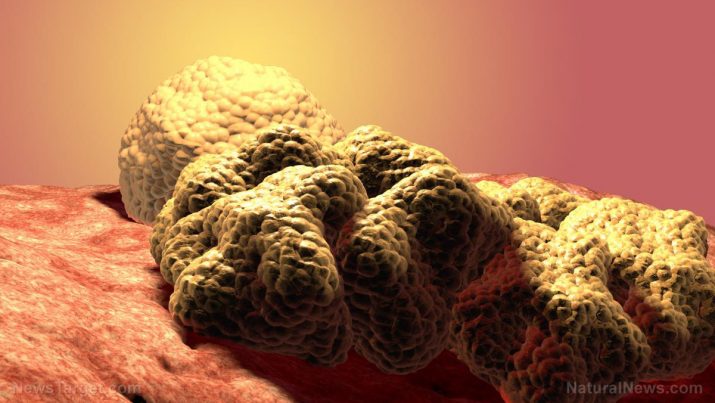
Lynch syndrome – causes, side effects and treatments at NaturalPedia.com
Monday, May 07, 2018 by Michelle Simmons
http://www.naturalpedia.com/lynch-syndrome-causes-side-effects-and-treatments-at-naturalpedia-com.html

Also known as hereditary non-polyposis colorectal cancer, Lynch syndrome is a type of inherited cancer syndrome associated with a genetic predisposition to various forms of cancer. This means that people with Lynch syndrome are more likely to develop certain types of cancer, such colon and rectal cancer. Cancers of the stomach, small intestine, liver, gallbladder ducts, upper urinary tract, brain, skin, and prostate may also develop.

Known side effects of Lynch syndrome
The known side effects of Lynch syndrome include abdominal mass, abdominal pain, rectal bleeding, anemia, weakness and fatigue, change in bowel habits, diarrhea, sudden weight loss, and loss of appetite.
Body systems harmed by Lynch syndrome
Lynch syndrome typically harms the digestive, urinary, nervous, reproductive, and integumentary systems.
List of foods or nutrients that prevent Lynch syndrome
There is no information on what foods or nutrients that prevent Lynch syndrome. However, there some foods that fight cancer in general, including raw garlic, cruciferous vegetables, green tea, berries, leafy green vegetables, cooked tomatoes, and carrots. Moreover, there are several herbs that help fight cancer in general. These include astragalus, berberis family, bloodroot, butchers broom, cat’s claw, chaparral, curcumin, dang shen root, echinacea, feverfew, goldenseal, milk thistle, pau d’ arco, red clover, sheep’s sorrel, skullcap, sutherlandia, thorowax, wheatgrass, and sweet wormwood.
Treatments, management plans for Lynch syndrome
Treatments for Lynch syndrome include surgery and healthy lifestyle changes. Any Lynch syndrome-type cancer is treated in the standard way for that type of cancer. For example, treating bowel cancer typically involves surgery to remove the cancer.
Where to learn more
- Processed snack foods increase colon cancer risk, especially in genetically susceptible individuals
- Broccoli yogurt? Researchers found the concoction killed 75% of bowel cancer tumors in mice, raising hopes it can treat or prevent the disease in humans
- Does cutting out body parts really prevent a disease?
- Cancer Free Lifestyles Rock!
- How Correct Breathing Can Prevent Cancer and Depression?
Summary
Lynch syndrome is a type of inherited cancer syndrome that increases the risk of certain cancers.
Lynch syndrome causes abdominal mass, abdominal pain, rectal bleeding, anemia, weakness and fatigue, change in bowel habits, diarrhea, sudden weight loss, and loss of appetite.
Lynch syndrome can lead to colorectal cancer or cancers of the stomach, small intestine, liver, gallbladder ducts, upper urinary tract, brain, skin, and prostate.
Lynch syndrome can be treated through surgery and healthy lifestyle changes.
Sources include:
Tagged Under: Tags: Lynch syndrome





